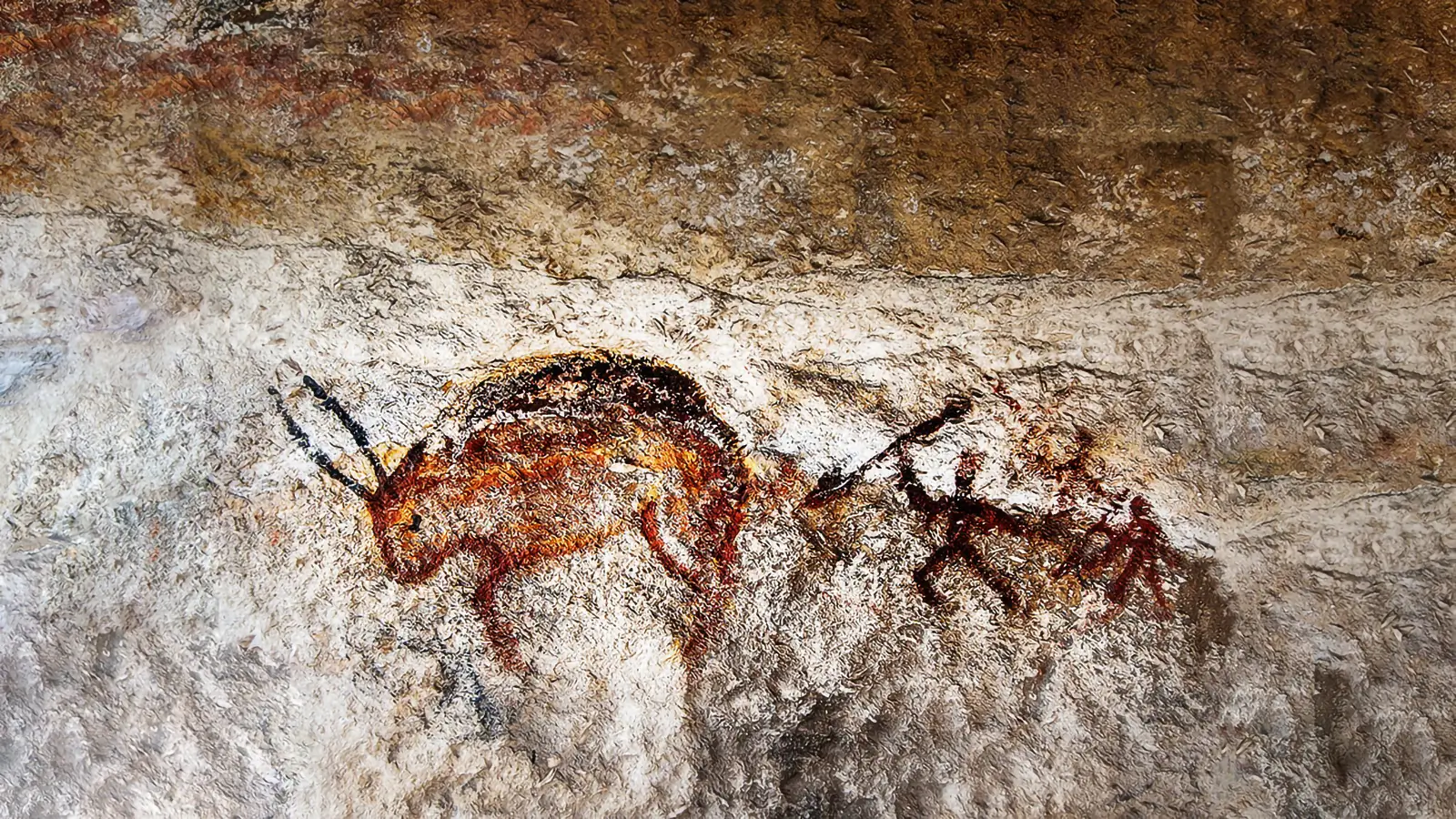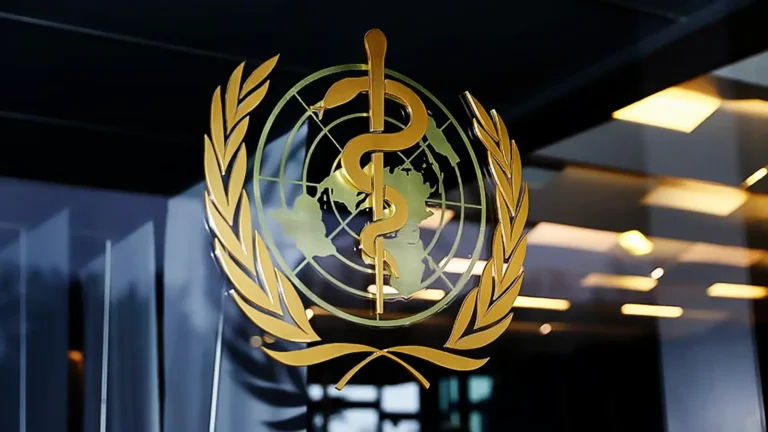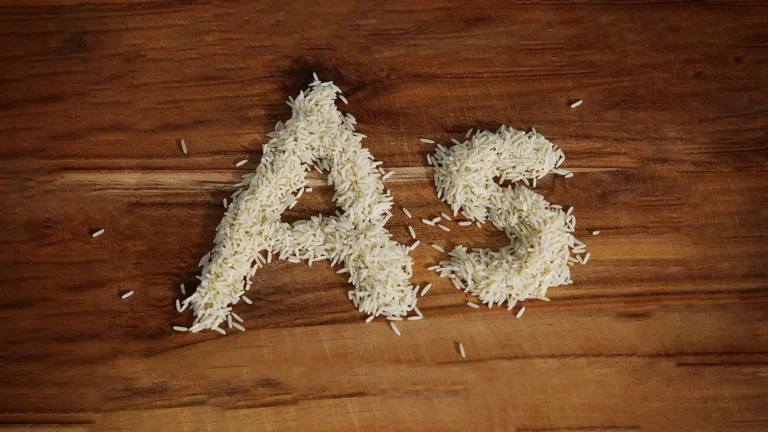Mittelmeerdiät- „Wunder“ von Olivenöl
Die Mittelmeerdiät, die als Olivenölwunder vermarktet wurde, hatte nichts mit Öl jeglicher Art zu tun, außer in dem Maße, dass es Butter und Schmalz ersetzen kann.
Milos Pokimica
Geschrieben von: Milos Pokimica
Medizinisch Begutachtet Von: Dr. Xiùying Wáng, M.D.
Aktualisiert am 9. Juni 2023Gute alte gesunde mediterrane Ernährung. Wird als Olivenölwunder vermarktet, das nichts mit Öl jeglicher Art zu tun hat, außer in dem Maße, dass es sogar schlechtere Alternativen wie normale gesättigte Fette wie Butter und Schmalz ersetzen kann. Genauso sah es sogar der Vater der Mittelmeerdiät (Schlüssel, 1987). Wenn Sie auf pubmed.gov nach einer Mittelmeerdiät suchen, werden etwa 5.000 Ergebnisse angezeigt. Die Mittelmeerdiät umfasst viele Diäten in vielen verschiedenen Ländern. Es kann Marokko oder Griechenland oder Spanien oder Italien oder ein anderer Ort sein.
Wenn wir jedoch über die Mittelmeerdiät sprechen, meinen wir damit die Ernährung auf der Insel Kreta in der Zeit nach dem Zweiten Weltkrieg. Als nächstes stellt sich außerdem die große Frage: Warum waren Herzerkrankungen im Mittelmeerraum selten? Bedeutung auf der Insel Kreta nach dem Zweiten Weltkrieg.
Nach dem Krieg und dem sozioökonomischen Zusammenbruch im Jahr 1948 war die griechische Regierung besorgt über die Unterernährung und den Gesundheitszustand ihrer Bürger. Sie beschloss, die Rockefeller Foundation einzuladen, um eine epidemiologische Studie auf der Insel Kreta durchzuführen. Im Jahr 1952 stellte Ancel Keys, derselbe Wissenschaftler, der für das Minnesota Starvation Experiment verantwortlich war, beeindruckt von den niedrigen Herzkrankheitsraten, nach der Auswertung der Daten einen Zusammenhang zwischen Fett, insbesondere gesättigten Fettsäuren, und Herzkrankheiten fest. Zu diesem Zeitpunkt sah er Cholesterin jedoch nicht als Problem an, da dies bedeutet hätte, dass tierische Produkte dafür verantwortlich wären. Der Zusammenhang zwischen Nahrungsfett und Herzerkrankungen wurde bereits in den 1930er Jahren beobachtet und beeinflusste Keys’ Arbeit, aber die Daten aus Kreta veranlassten ihn 1953, einen Artikel darüber zu schreiben und öffentliche Vorträge zu halten. Die berühmte Sieben-Länder-Studie sollte fünf Jahre später, 1958, beginnen, um Keys’ Bedenken zu untersuchen (www.sevencountriesstudy.com). In den 1960er Jahren war man allgemein davon überzeugt, dass gesättigte Fettsäuren zu Herzerkrankungen beitragen. Die Ernährung der Menschen auf der Insel Kreta war später ein Katalysator für diese Forschung. 1970 wurde erstmals die Sieben-Länder-Studie vorgelegt. Jetzt wurde Keys 100 Jahre alt und war zu dieser Zeit nicht so radikal, wie die Cholesterin-Verwirrungen Sie glauben machen wollen. Er empfahl, weniger Fett zu essen, also Fett im Fleisch und Fett im Allgemeinen wie Eier (oder zumindest Eigelb) und Milchprodukte, und stattdessen mehr Fisch und Hühnchen zu essen. Er betrachtete Obst und Gemüse lediglich als Ergänzungsnahrung und hatte einen Cholesterinspiegel von etwa 200. Diese Zahl ist bei weitem nicht gesund, aber er wurde 100 Jahre alt. Das Problem bestand darin, dass er ein Arzt war und dem gleichen System angehörte wie alle anderen anderer Arzt.
Arteriosklerose ist eine Krankheit, kein Alterungsprozess. Wir können uns die Arterien und den Blutdruck armer Menschen an Orten wie Kreta ansehen. Keys erkannte nicht die wahre Realität der Ernährung auf Kreta. Er dachte, es handele sich nur um Fett und sah kein Problem in tierischem Eiweiß. Tierisches Proteinkorrelation wurde sogar in den Charts übersehen. Er trübte das Wasser, indem er einfach auf Fett zeigte.
Allerdings war selbst das nicht gut genug. Sogar das war übertrieben. Im Jahr 1966 veröffentlichten George Campbell und Thomas L. Cleave „Diabetes, Coronary Thrombosis, and Saccharine Disease“. Sie argumentierten, dass chronische westliche Krankheiten wie Herzerkrankungen, Magengeschwüre, Diabetes und Fettleibigkeit durch eine Sache verursacht werden: „Krankheit durch raffinierte Kohlenhydrate“. Es war eine nie endende Geschichte. Es hat bis heute nie aufgehört. Alles ist eine Lüge, der die entgegengesetzte Lüge gegenübersteht. Künstlich erzeugte Diätkriege und Verwirrung. Es war eine gute Designstrategie, die in 70 Jahren nichts geändert hat, außer dass normale Menschen mit krankheitsverursachendem Geld überzogen wurden und eine böse Schleife des Elends entstand. Selbst in der heutigen Zeit ist es die gleiche alte Manipulationsgeschichte. Im Jahr 2001 schrieb Gary Taubes beispielsweise in dem Artikel im Science Magazine mit dem Titel „Nutrition: The Soft Science of Dietary Fat“:
“Es ist nach wie vor umstritten, ob der Verzehr von gesättigten Fetten über den empfohlenen Mengen bei Personen, die nicht bereits ein hohes Risiko für Herzerkrankungen haben, die Wahrscheinlichkeit eines vorzeitigen Todes erhöht ... oder ob Studien im Wert von Hunderten Millionen Dollar überzeugende Beweise dafür liefern konnten, dass gesunde Menschen ihr Leben um mehr als ein paar Wochen verlängern können, wenn überhaupt, indem sie weniger Fett essen.”
70 Jahre später glauben die Menschen, dass die mediterrane Ernährung aufgrund des Olivenöls gesund ist. Dies ist ein hervorragendes Beispiel für eine Halbwahrheit. Italienische Restaurants vermarkten sich selbst als gesunde mediterrane Küche mit Spaghetti Carbonara und Alkohol. Die Sterblichkeitsrate aufgrund von Herzerkrankungen auf Kreta war zu dieser Zeit mehr als 20 Mal, nicht 20 Prozent, sondern 20 Mal niedriger als in den USA. Wir sehen diese Daten statistisch aus Orten wie dem ländlichen China, Kreta, Okinawa und so weiter und stellen fest, dass die Ernährung dieser Menschen einfach und ähnlich ist. Wie dumm müssen wir sein, um nicht zu erkennen, was wirklich vor sich geht? Wissenschaftler mit einem hohen Bildungsniveau sind nicht die Dummen. Sie haben ein sechsstelliges Jahreseinkommen plus Boni. Sie sind die Klugen. Wir sind es nicht. Ernährungswissenschaft ist keine geheime, tief unterirdische militärische Antriebslaborforschung. Es gibt keine echten Debatten auf dem Gebiet der Ernährung, sondern nur die absichtliche Schaffung von Verwirrung.
Was haben die Menschen auf Kreta nach dem Zweiten Weltkrieg gegessen? Die Antwort ist dieselbe. Kein Fleisch, keine Eier und keine Milchprodukte. Nur die Nahrung der Armen wie Obst und Gemüse, Getreide, Nüsse und Hülsenfrüchte. Dinge, die lokal wachsen. In Zahlen ausgedrückt aßen sie mehr als 90% pflanzliche Produkte, während Fleisch, Fisch, Milchprodukte und Eier zusammen etwa 7% ausmachten. Sie aßen zwar etwas Olivenöl, da Oliven auf Kreta wachsen, aber das ist keine Olivenöl-Diät. Und auch keine Weindiät. An Wein ist nichts Gesundes, außer den Trauben. Wir wären besser dran, wenn wir einfach rohen Traubensaft trinken würden. Wenn wir uns das heutige Griechenland ansehen, was würden wir dort wohl vorfinden? Das Land hat die höchste Rate an Fettleibigkeit bei Kindern in Europa. Die Insel Kreta eingeschlossen. Sobald sich die Wirtschaft verbessert, kommen Fleisch, Käse, Zucker und Alkohol ins Spiel. Und auch das Rauchen. Griechenland hat eine Tabakkonsumrate von über 40%. Die mediterrane Ernährung war keine lokal spezifische mediterrane Ernährung wie die italienische oder griechische Küche oder ähnliches. Es war eine Armutsernährung ohne Fleisch, Eier und Milchprodukte, ähnlich wie die Ernährung in allen von Armut oder Krieg heimgesuchten Gebieten, und die Industrie erwähnt dies nicht gerne. Herzkrankheiten waren in Griechenland eine Seltenheit. Waren. Sind es nicht mehr. Und selbst auf Kreta aßen einige reiche Leute in Kriegszeiten “normal”, d. h. sie aßen jeden Tag Fleisch statt nur einmal alle zwei Wochen. Herzinfarkte waren für sie ebenfalls normal, im Gegensatz zu den übrigen einfachen Leuten, die von Armut betroffen waren. Heute ernährt sich niemand mehr nach der echten mediterranen Ernährung. Die reine mediterrane Ernährung von heute, die überwiegend pflanzlich ist, ist keine echte Vollwertkost. Sie wird von Weißmehl, dem Konsum von Öl und Salz sowie Alkohol dominiert. Auf Kreta aß man keine raffinierten weißen Nudeln aus der Fabrik mit einer Sauce voller extrahiertem Öl und Flaschen Wein. Alkohol ist ein bekannter Risikofaktor für Brustkrebs, selbst wenn wir Entzündungen und Toxizität außer Acht lassen. Das ist keine gesundheitsfördernde Mahlzeit. Nun, das ist keine gesundheitsfördernde Mahlzeit, wenn wir sie nicht mit der noch schlechteren amerikanischen Standardmahlzeit von heute vergleichen. Also ja, die mediterrane Ernährung ist gesünder als die normale Ernährung, aber nicht so gesund wie eine echte natürliche menschliche Ernährung. Eine vollwertige pflanzliche Ernährung.
Das Problem ist, dass normales Essen nicht so lecker ist wie raffiniertes, reich an Salz und Öl und Zucker Deshalb hält sich kaum jemand daran. Von klein auf bekommen Kinder all diese Chemikalien, die wir als Lebensmittel betrachten, sodass wir schon in der Kindheit süchtig danach werden und keine echte Vergleichsgrundlage mehr dafür haben, was echte menschliche Nahrung ist. Deshalb funktioniert die Ernährung armer Menschen. Wenn wir Cholesterin, Giftstoffe und gesättigte Fette aus tierischen Produkten außer Acht lassen und die einzelnen Bestandteile der Ernährung auf Kreta analysieren, sehen wir, dass es eigentlich nicht Getreide war, das vor Herzinfarkten schützte. Getreide war eher neutral und hatte, da es sich um Vollwertkost mit Ballaststoffen handelte, keinen Einfluss auf Fettleibigkeit oder Diabetes. Unter den einzelnen Bestandteilen der mediterranen Ernährung hatte der Verzehr von Gemüse und Nüssen tatsächlich den größten Einfluss auf die Senkung des Risikos für Herz-Kreislauf-Erkrankungen. Vegetarier, die Nüsse essen, haben ein geringeres Risiko für Herz-Kreislauf-Erkrankungen als diejenigen, die keine Nüsse essen, und es gibt mittlerweile auch eine Reihe von Studien zu diesem Thema. Hier ist eine davon (Guasch-Ferré et al., 2013) mit der Schlussfolgerung: „Eine erhöhte Häufigkeit des Nussverzehrs war mit einem deutlich verringerten Sterblichkeitsrisiko in einer Mittelmeerbevölkerung mit hohem kardiovaskulären Risiko verbunden.“
Nüsse haben einen hohen Ölgehalt, aber auch einen hohen Ballaststoffgehalt, sodass das Öl nicht sofort absorbiert wird wie Fett aus Fleisch oder raffiniertes Öl und im Gegensatz zu Fleisch oder Öl sind Nüsse reich an Antioxidantien und anderen sekundären Pflanzenstoffen. Ein weiterer Vorteil von Nüssen besteht darin, dass in Kombination mit grünem Öl die phytochemische Absorption fettlöslicher Chemikalien erhöht wird, die in bereits gesunden Gemüsesorten enthalten sind. Wir müssen nicht auf fettarme Ernährung umsteigen, den Verzehr von Nüssen und Samen meiden und überwiegend Stärke essen. Wir sollten Stärke, Nüsse und alle anderen Lebensmittel in möglichst großer Vielfalt essen. Bisher hat die Wissenschaft keinen Zusammenhang zwischen einem hohen Verzehr von Samen und Nüssen und einer Krankheit, einschließlich Fettleibigkeit, hergestellt, außer bei Allergikern. Nur das Gegenteil. Sie sind in fast jedem Zustand von Vorteil. Paranüsse sind reich an Selen und Walnüsse schützen vor Krebs. Lignane in Leinsamen gehören zu den schützendsten Chemikalien gegen Brustkrebs und sind außerdem reich an Omega-3-Ölen für die Gehirnfunktion. Unsere Vorfahren aßen schon lange rohe Nüsse und Samen. Sie sind unsere natürliche Nahrung ebenso wie Früchte oder Körner oder junge Blätter oder anderes grünes Blattgemüse.
Die gesunde Ernährung ist diejenige, die wir entwickelt und an die wir uns angepasst haben. Das ist es.
Verweise:
- Keys A. (1987). Olivenöl und koronare Herzkrankheit. Lancet (London, England), 1(8539), 983–984. https://doi.org/10.1016/s0140-6736(87)90337-0
- Guasch-Ferré, M., Bulló, M., Martínez-González, M. Á., Ros, E., Corella, D., Estruch, R., Fitó, M., Arós, F., Wärnberg, J. , Fiol, M., Lapetra, J., Vinyoles, E., Lamuela-Raventós, RM, Serra-Majem, L., Pintó, X., Ruiz-Gutiérrez, V., Basora, J., Salas-Salvadó, J. & PREDIMED-Studiengruppe (2013). Häufigkeit des Nusskonsums und Mortalitätsrisiko in der PREDIMED-Ernährungsinterventionsstudie. BMC-Medizin, 11, 164. https://doi.org/10.1186/1741-7015-11-164
Zusammenhängende Posts
Haben Sie Fragen zum Thema Ernährung und Gesundheit?
Ich würde gerne von Ihnen hören und sie in meinem nächsten Beitrag beantworten. Ich freue mich über Ihren Beitrag und Ihre Meinung und freue mich darauf, bald von Ihnen zu hören. Ich lade Sie auch dazu ein Folgen Sie uns auf Facebook, Instagram und Pinterest für weitere Inhalte zu Ernährung und Gesundheit. Sie können dort einen Kommentar hinterlassen und sich mit anderen Gesundheitsbegeisterten austauschen, Ihre Tipps und Erfahrungen teilen und Unterstützung und Ermutigung von unserem Team und unserer Community erhalten.
Ich hoffe, dass dieser Beitrag für Sie informativ und unterhaltsam war und dass Sie bereit sind, die gewonnenen Erkenntnisse anzuwenden. Wenn Sie diesen Beitrag hilfreich fanden, dann es teilen mit Ihren Freunden und Familienangehörigen, die ebenfalls davon profitieren könnten. Man weiß nie, wer auf seinem Weg zur Gesundheit vielleicht etwas Anleitung und Unterstützung braucht.
– Das könnte Ihnen auch gefallen –

Über Ernährung Lernen
Milos Pokimica ist Doktor der Naturheilkunde, klinischer Ernährungsberater, Autor für medizinische Gesundheit und Ernährung sowie Berater für Ernährungswissenschaften. Autor der Buchreihe Zum Veganer werden? Rückblick auf die Wissenschafter betreibt auch das Natürliche Gesundheit website GoVeganWay.com
Medizinischer Haftungsausschluss
GoVeganWay.com bietet Ihnen Rezensionen der neuesten Ernährungs- und Gesundheitsforschung. Die bereitgestellten Informationen stellen die persönliche Meinung des Autors dar und sind weder als Ersatz für professionelle medizinische Beratung, Diagnose oder Behandlung gedacht noch impliziert. Die bereitgestellten Informationen dienen ausschließlich Informationszwecken und sollen nicht als Ersatz für die Beratung, Diagnose und/oder medizinische Behandlung durch einen qualifizierten Arzt oder Gesundheitsdienstleister dienen.Ignorieren Sie niemals professionellen medizinischen Rat oder verzögern Sie die Suche nach medizinischer Behandlung, weil Sie etwas auf GoVeganWay.com gelesen oder über GoVeganWay.com darauf zugegriffen haben
Nehmen Sie NIEMALS Änderungen im Lebensstil oder irgendwelche Änderungen vor, die eine Folge von etwas sind, das Sie auf GoVeganWay.com gelesen haben, bevor Sie einen zugelassenen Arzt konsultieren.
Bei einem medizinischen Notfall rufen Sie sofort einen Arzt oder die Notrufnummer 911 an. GoVeganWay.com empfiehlt oder unterstützt keine bestimmten Gruppen, Organisationen, Tests, Ärzte, Produkte, Verfahren, Meinungen oder andere Informationen, die darin erwähnt werden könnten.
Herausgeber-Tipps –
Milos Pokimica ist Autor für Gesundheit und Ernährung sowie Berater für Ernährungswissenschaften. Er ist Autor einer Buchreihe. Zum Veganer werden? Rückblick auf die Wissenschafter betreibt auch das Natürliche Gesundheit website GoVeganWay.com
Neueste Artikel –
Top-Gesundheitsnachrichten – ScienceDaily
- The overlooked nutrition risk of Ozempic and Wegovyam Februar 4, 2026
Popular weight-loss drugs like Ozempic and Wegovy can dramatically curb appetite, but experts warn many users are flying blind when it comes to nutrition. New research suggests people taking these medications may not be getting enough guidance on protein, vitamins, and overall diet quality, increasing the risk of muscle loss and nutrient deficiencies.
- A 25-year study found an unexpected link between cheese and dementiaam Februar 4, 2026
A massive Swedish study tracking nearly 28,000 people for 25 years found an unexpected link between full-fat dairy and brain health. Among adults without a genetic risk for Alzheimer’s, eating more full-fat cheese was associated with a noticeably lower risk of developing the disease, while higher cream intake was tied to reduced dementia risk overall. The findings challenge decades of low-fat dietary advice but come with important caveats.
- MIT’s new brain tool could finally explain consciousnessam Februar 4, 2026
Scientists still don’t know how the brain turns physical activity into thoughts, feelings, and awareness—but a powerful new tool may help crack the mystery. Researchers at MIT are exploring transcranial focused ultrasound, a noninvasive technology that can precisely stimulate deep regions of the brain that were previously off-limits. In a new “roadmap” paper, they explain how this method could finally let scientists test cause-and-effect in consciousness research, not just observe […]
- Why heart disease risk in type 2 diabetes looks different for men and womenam Februar 4, 2026
Scientists are digging into why heart disease risk in type 2 diabetes differs between men and women—and sex hormones may be part of the story. In a large Johns Hopkins study, men with higher testosterone had lower heart disease risk, while rising estradiol levels were linked to higher risk. These hormone effects were not seen in women. The results point toward more personalized approaches to heart disease prevention in diabetes.
- Sound machines might be making your sleep worseam Februar 4, 2026
Sound machines may not be the sleep saviors many believe. Researchers found that pink noise significantly reduced REM sleep, while simple earplugs did a better job protecting deep, restorative sleep from traffic noise. When pink noise was combined with outside noise, sleep quality dropped even further. The results suggest that popular “sleep sounds” could be doing more harm than good—particularly for kids.
- This unexpected plant discovery could change how drugs are madeam Februar 3, 2026
Plants make chemical weapons to protect themselves, and many of these compounds have become vital to human medicine. Researchers found that one powerful plant chemical is produced using a gene that looks surprisingly bacterial. This suggests plants reuse microbial tools to invent new chemistry. The insight could help scientists discover new drugs and produce them more sustainably.
- A hidden cellular process may drive aging and diseaseam Februar 3, 2026
As we age, our cells don’t just wear down—they reorganize. Researchers found that cells actively remodel a key structure called the endoplasmic reticulum, reducing protein-producing regions while preserving fat-related ones. This process, driven by ER-phagy, is tied to lifespan and healthy aging. Because these changes happen early, they could help trigger later disease—or offer a chance to stop it.
PubMed, #Vegane Diät –
- Diet type and the oral microbiomeam Februar 2, 2026
CONCLUSION: The diet-oral microbiome-systemic inflammation axis is bidirectional and clinically relevant. Understanding both direct ecological regulation and indirect metabolic effects is essential to support precision nutrition strategies aimed at maintaining oral microbial balance and systemic inflammatory risk mitigation.
- Consensus document on healthy lifestylesam Januar 22, 2026
Proteins are a group of macronutrients that are vital to our lives, as they perform various functions, including structural, defensive and catalytic. An intake of 1.0-1.2 g/kg/body weight per day would be sufficient to meet our needs. Carbohydrate requirements constitute 50 % of the total caloric value and should be obtained mainly in the form of complex carbohydrates. In addition, a daily intake of both soluble and insoluble fiber is necessary. Regular consumption of extra virgin olive oil […]
- Vitamin B12 and D status in long-term vegetarians: Impact of diet duration and subtypes in Beijing, Chinaam Januar 21, 2026
CONCLUSIONS: This study reveals a dual challenge among Beijing long-term vegetarians: vitamin B12 deficiency was strongly associated with the degree of exclusion of animal products from the diet (veganism), while vitamin D deficiency was highly prevalent and worsened with longer diet duration. The near-universal vitamin D deficiency observed in this study suggests that, in the Beijing context, the risk may extend beyond dietary choice, potentially reflecting regional environmental factors;…
- Nutritional evaluation of duty meals provided to riot police forces in Germanyam Januar 13, 2026
Background: The primary role of the German riot police is maintaining internal security. Due to challenging working conditions, riot police forces face an elevated risk of various diseases. During duty, forces are provided with meals. A balanced diet can reduce the risk of some of these diseases and contribute to health-promoting working conditions. Aim: First evaluation of the nutritional quality of duty meals in Germany based on German Nutrition Society recommendations (DGE). Methods: In…
- Iodineam Januar 1, 2006
Iodine is an essential trace nutrient for all infants that is a normal component of breastmilk. Infant requirements are estimated to be 15 mcg/kg daily in full-term infants and 30 mcg/kg daily in preterm infants.[1] Breastmilk iodine concentration correlates well with maternal urinary iodine concentration and may be a useful index of iodine sufficiency in infants under 2 years of age, but there is no clear agreement on a value that indicates iodine sufficiency, and may not correlate with […]
Zufällige Beiträge –
Beliebte Beiträge -
Neuestes von PubMed, #pflanzliche Ernährung –
- From paddy soil to dining table: biological biofortification of rice with zincvon Lei Huang am Februar 4, 2026
One-third of paddy soils are globally deficient in zinc (Zn) and 40% of Zn loss in the procession from brown rice to polished rice, which results in the global issue of hidden hunger, e.g., the micronutrient deficiencies in the rice-based population of developing countries. In the recent decades, biofortification of cereal food crops with Zn has emerged as a promising solution. Herein, we comprehensively reviewed the entire process of Zn in paddy soil to human diet, including the regulatory…
- Molecular Characterization of Tobacco Necrosis Virus A Variants Identified in Sugarbeet Rootsvon Alyssa Flobinus am Februar 3, 2026
Sugarbeet provides an important source of sucrose; a stable, environmentally safe, and low-cost staple in the human diet. Viral diseases arising in sugarbeet ultimately impact sugar content, which translates to financial losses for growers. To manage diseases and prevent such losses from occurring, it is essential to characterize viruses responsible for disease. Recently, our laboratory identified a tobacco necrosis virus A variant named Beta vulgaris alphanecrovirus 1 (BvANV-1) in sugarbeet…
- Nutrition in early life interacts with genetic risk to influence preadult behaviour in the Raine Studyvon Lars Meinertz Byg am Februar 3, 2026
CONCLUSIONS: Nutrition in early life and psychiatric genetic risk may interact to determine lasting child behaviour. Contrary to our hypothesis, we find dietary benefits in individuals with lower ADHD PGS, necessitating replication. We also highlight the possibility of including genetics in early nutrition intervention trials for causal inference.
- Effect of the gut microbiota on insect reproduction: mechanisms and biotechnological prospectsvon Dilawar Abbas am Februar 2, 2026
The insect gut microbiota functions as a multifunctional symbiotic system that plays a central role in host reproduction. Through the production of bioactive metabolites, gut microbes interact with host hormonal pathways, immune signaling, and molecular regulatory networks, thereby shaping reproductive physiology and fitness. This review summarizes recent advances in understanding how gut microbiota regulate insect reproduction. Accumulating evidence demonstrates that microbial metabolites…
- Rationale and design of a parallel randomised trial of a plant-based intensive lifestyle intervention for diabetes remission: The REmission of diabetes using a PlAnt-based weight loss InteRvention…von Brighid McKay am Februar 2, 2026
CONCLUSIONS: This trial will provide high-quality clinical evidence on the use of plant-based ILIs to address the epidemics of obesity and diabetes to inform public health policies and programs in Canada and beyond.
- Diet type and the oral microbiomevon Daniel Betancur am Februar 2, 2026
CONCLUSION: The diet-oral microbiome-systemic inflammation axis is bidirectional and clinically relevant. Understanding both direct ecological regulation and indirect metabolic effects is essential to support precision nutrition strategies aimed at maintaining oral microbial balance and systemic inflammatory risk mitigation.

















